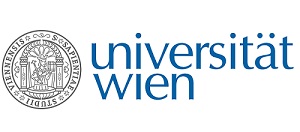University of Vienna (UNIVIE) AT

University of Vienna (UNIVIE) AT
Specific Department: Faculty of Psychology, Department of Basic Psychological Research and Research Methods (Head, Professor Dr. Helmut Leder).
Main individuals carrying out task:
(1) Dr. Matthew Pelowski, Senior Postdoc/University Assistant, Faculty of Psychology, Department of Basic Psychological Research and Research Methods;
(2) Dr. Helmut Leder, Professor and Head, Department of Basic Psychological Research and Research Methods, Faculty of Psychology. Head, Cognitive Sciences Research Platform.
Main tasks
Main project coordinator of the consortium, will be the coordinator and member of PMT (Pelowski). Work on the empirical aesthetics side of the project and coordinate most of the research activities; active leader of Workpackages 1 and 2. Here UNIVIE will be responsible for planning, executing, and overseeing all museum art studies (WP2), as well as providing main collaboration and on-site assistance for urban art studies (WP3) and experience sampling (WP4). Will also be responsible for conducting all mobile brain imaging studies (WP 2-3). Will take a main role in paper writing for empirical studies and data analysis. Responsible for coordination and quality control throughout the project. Will lead a Kick-off meeting in Vienna (Month 0-3).
General Description
The University of Vienna was founded in 1365. It is the oldest university in the German-speaking world and one of the largest in Europe. Currently, about 92,000 students are enrolled at the University. With 9,500 employees, 6,700 of who are academics, the University of Vienna is the largest teaching and research institution in Austria. It is associated with 15 Nobel prize winners. Furthermore, 20 research platforms have been established to promote especially innovative interdisciplinary research projects.
The University of Vienna also has extensive experience in managing externally funded projects. As a successful participant in the European Commission's Research Framework Programme 7 (FP7), the University took part in 189 FP7 projects. To date, it has been awarded over 120 Horizon 2020 projects including 24 ERC Investigator Grants, 14 MSCA ITNs and 32 MSCA International Fellowships. EU and Austrian national funds supply around €80 million of funding to projects at the University every year. The Research Services and Career Development Department, which provide grant management support and other institutional support services, are thus well accustomed to handling European Commission project needs.
The project setting will be the Department for Psychological Basic Research and Research Methods, Headed by Prof. Leder (Empirical Visual Aesthetics Laboratory, EVA Lab). This department, and the EVA Lab in particular, with the research focus “perceptual aesthetics” and closely associated with the Cognitive Sciences Research Platform (http://cogsci.UV.ac.at/, Co-Head Prof. Leder), was the first, and still is the world’s leading, research group devoted to empirical/psychological studies of the interaction with and perception of art. Since its founding in 2004, it has been a vital source for the development of this research field, which itself has seen a burgeoning of interest especially throughout the past 10 years. The EVA Lab has current members and alumni serving as editors of major journals in empirical and psychological investigations with art (APA, Journal of Psychology, Creativity, and the Arts, Tinio; Empirical Studies of the Arts, Nadal; International Association of Empirical Aesthetics, headed by Leder from 2014-18). Today, the EVA Lab and the larger Faculty of Psychology, are at the forefront of theoretical and empirical art viewing investigations, the use of neuroaesthetics and art-related brain study, creation of essential methods and batteries for the assessment of art engagement, participant background and personality differences and publishes tens of papers yearly on topics in aesthetics and art interaction. Recently (through the collaboration of Prof. Leder and Dr. Pelowski), the EVA Lab has also pioneered the emphasis on ecologically-valid studies of museum art experience, combining both self-report assessments of emotion and cognitive processes, as well as mobile eye- and movement-tracking and mobile brain scanning. It also enjoys a fruitful research collaboration and important resulting publications with multiple art institutions in Vienna and abroad (Albertina, Belvedere, Kunsthistorisches Museum, Tate Modern, see Leder and Pelowski).
The EVA Lab also has involved doctorate and post-doc researchers in all projects in order to empower their higher qualification. Recent candidates of training, themselves recipients of funded grants, include: Carbon in DfG projects, Belke in SFB DFG (as well as graduate students), Specker in WWTF projects, Gerger, Färber and Jakesch in FWF projects.
Main individuals carrying out research
Significant infrastructure and/or items of technical equipment
The department recently obtained mobile technologies which will be employed in the project and specifically empower museum studies, including two portable fNIRS systems (NIRSport 16-optode, NIRx Medical Technologies, LLC), portable EEG (live amp-64, Brain Products GmbH, Germany), and SCR/fEMG/heart rate system (Shimmer multisensory kit, Dublin, Ireland). Through the SCAN Unit, the PI also had access to an fMRI (3 tesla, Siemens), full-time technicians, and medical staff. In addition, the department has multiple tablet computers for use with on-site surveying, as well as licenses for leading survey packages (e.g., Qualtrics). The Department of Basic Psychological Research also has seven experimental laboratories for use in follow-up studies, with stationary eye-tracking (Eyelink 1000) and other physiological measuring tools, and all required statistical software packages. The project team and all hired researchers will be provided office space, computer and desk at the Department of Psychological Basic Research.


